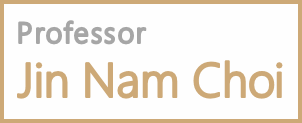49. *Chae, H., & Choi, J. N. (2018). Contextualizing the effects of job complexity on creativity and task performance: Extending job design theory with social and contextual contingencies. Journal of Occupational and Organizational Psychology, 91, 316-339.
*Chae, H., & Choi, J. N. (2018) Contextualizing the effects of job complexity on creativity and task performance: Extending job design theory with social and contextual contingencies. Journal of Occupational and Organizational Psychology, 91, 316-339.
48. Choi, J. N., Sung, S. Y., & Zhang, Z. (2017). Workforce diversity in manufacturing companies and organizational performance: The role of status-relatedness and internal processes. International Journal of Human Resource Management, 28, 2738-2761.
Choi, J. N., Sung, S. Y., & Zhang, Z. (2017). Workforce diversity in manufacturing companies and organizational performance: The role of status-relatedness and internal processes. International Journal of Human Resource Management, 28, 2738-2761.
47. Lee, Y. S., Chang, J. Y., & Choi, J. N. (2017). Why reject creative ideas? Fear as a driver of implicit bias against creativity. Creativity Research Journal, 29, 225-235.
Lee, Y. S., Chang, J. Y., & Choi, J. N. (2017). Why reject creative ideas? Fear as a driver of implicit bias against creativity. Creativity Research Journal, 29, 225-235.
46. *Sung, S. Y., Antefelt, A., & Choi, J. N. (2017). Dual effects of job complexity on proactive and responsive creativity: Moderating role of employee ambiguity tolerance. Group & Organization Management, 42(3), 388-418.
*Sung, S. Y., Antefelt, A., & Choi, J. N. (2017) Dual effects of job complexity on proactive and responsive creativity: Moderating role of employee ambiguity tolerance. Group & Organization Management, 42, 388-418.
45. *Park, J., Chae, H., & Choi, J. N. (2017). The need for status as a hidden motive of knowledge-sharing behavior: An application of costly signaling theory. Human Performance, 30, 21-37.
* Park, J., Chae, H. & Choi, J. N. (2017). The need for status as a hidden motive of knowledge-sharing behavior: An application of costly signaling theory. Human Performance, 30, 21-37.
44. Kim, M. J., Choi, J. N., & Lee, K. (2016). Trait affect and individual creativity: Moderating roles of affective climate and reflexivity. Social Behavior and Personality, 44, 1477-1498.
*Kim, M. J., Choi, J. N. & Lee, K. (2016). Trait affect and individual creativity: Moderating roles of affective climate and reflexivity. Social Behavior and Personality, 44, 1477-1498.
43. Gong, T., & Choi, J. N. (2016). Effects of task complexity on creative customer behavior. European Journal of Marketing, 50, 1003-1023.
Gong, T., & Choi, J. N. (2016). Effects of task complexity on creative customer behavior. European Journal of Marketing, 50, 1003-1023.
42. * Shin, Y., Kim, M., Choi, J. N., Lee, S.-H. (2016). Does team culture matter? Roles of team culture and collective regulatory focus in team task and creative performance. Group & Organization Management, 41, 232-265.
* Shin, Y., Kim, M., Choi, J. N., Lee, S.-H. (2016). Does team culture matter? Roles of team culture and collective regulatory focus in team task and creative performance. Group & Organization Management, 41, 232-265.
41. * Gong, T., Choi, J. N., & Murdy, S. (2016). Does customer value creation behavior drive customer well-being? Social Behavior and Personality, 44, 59-76.
* Gong, T., Choi, J. N., & Murdy, S. (2016). Does customer value creation behavior drive customer well-being? Social Behavior and Personality, 44, 59-76.
40. Yoon, H. J., Sung, S. Y., Choi, J. N., Lee. K., & Kim, S. (2015). Tangible and intangible rewards and employee creativity: The mediating role of situational extrinsic motivation. Creativity Research Journal, 27, 383-393.
Yoon, H. J., Sung, S. Y., Choi, J. N., Lee. K., & Kim, S. (2015). Tangible and intangible rewards and employee creativity: The mediating role of situational extrinsic motivation. Creativity Research Journal, 27, 383-393.
